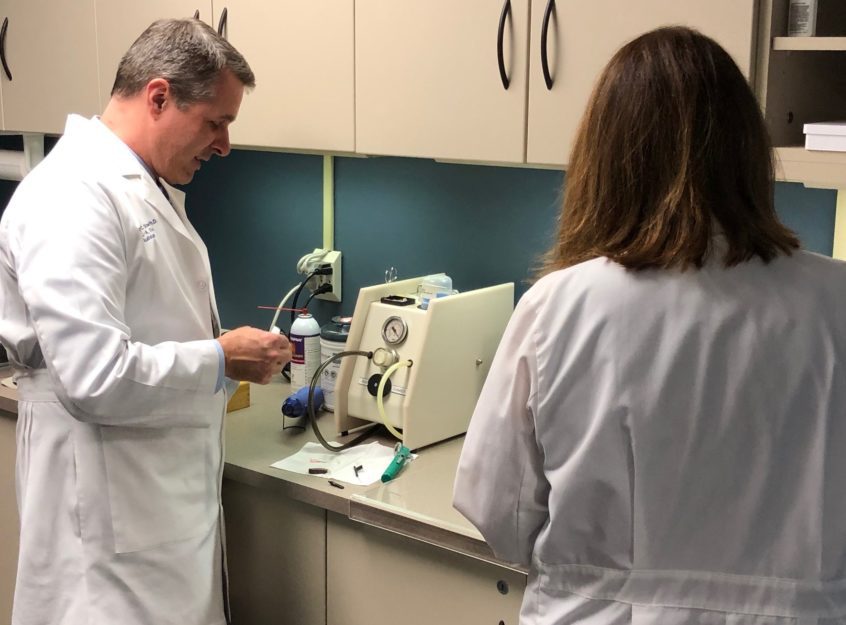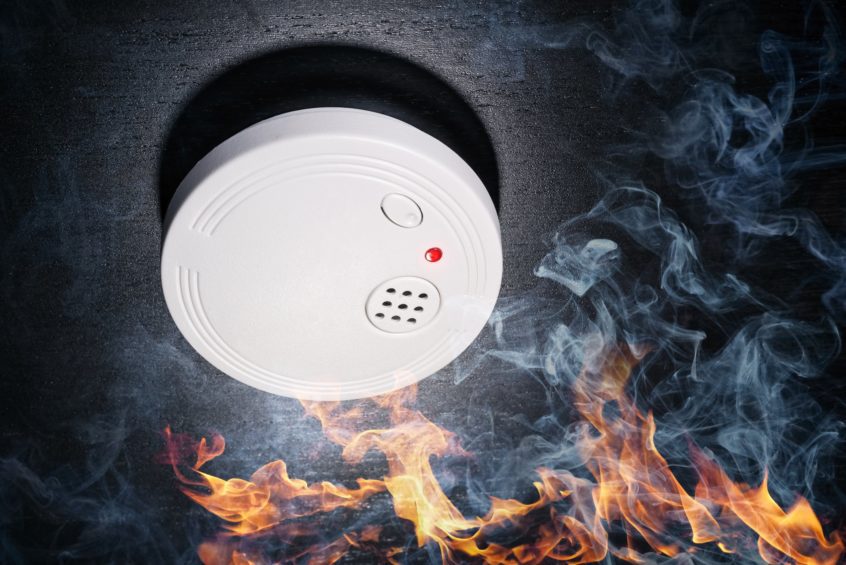Hearing loss affects 38 million Americans, a number that’s expected to double by 2060, with current aging population trends. An estimated one in three people in the U.S. between the ages of 65 and 74 currently has hearing loss, and two-thirds of adults age 70 years and older have a clinically significant hearing loss. Older Adults with Untreated Hearing Loss … Read More
5 Factors That Affect How Long Hearing Aids Last
Hearing aids are a significant investment for many people which improve their quality of life and ability to communicate with friends and family. But the fact remains that most hearing aids have a limited lifespan, and that lifespan may range from three to seven years, depending on the type of hearing aid, where it is purchased, how it is serviced, and … Read More
Special Fire Alarms Can Alert Individuals with Hearing Loss to Danger
According to the American Red Cross, which responds to more than 60,000 house fires annually, fires kill more Americans each year than all other natural disasters combined. Children under 5 and adults over 65 are more than twice as likely to die in a home fire than the rest of the U.S. population. Smoke Detectors May Not Be Loud Enough for … Read More
How Hearing Loss Affects Your Daily Life
Your hearing plays a major role in everything you do: your job, your personal life, and even your physical health and safety. Many people assume that some hearing loss isn’t a problem, or that they can simply “get by” with asking people to repeat themselves or being unable to hear in daily situations.Unfortunately, many of these same people experience a … Read More
Five Steps to Making Good Decisions about Your Hearing Care
5 Steps to Make Smart Hearing Care Decisions Three important values I learned from my parents are to work hard, be honest, and do what you say you are going to do. These values are critical for Associated Audiologists, Inc. and serve as the foundation for our company. I believe that relationships matter. If our relationships with patients … Read More
Do Your Hearing Aids Need a Boost?
Just as their name implies, hearing aids can help you hear. But sometimes hearing aids aren’t enough. Sometimes your hearing aids need an extra boost to help you hear your best. Assistive Listening Devices Boost Hearing Aid Abilities If your hearing aids are current and quality technology fit by a doctoral-level audiologist using real-ear measurement, but you still have problems … Read More
Hearing Aid Experts
Determining the best hearing aid technology for each individual patient is a complex process which takes the patient’s comprehensive hearing evaluation, health history, lifestyle, personal listening needs and budget into consideration.
“Smart” Hearing Aid Technology Could Change Your Life
Today we have hearing aids that are “smart!” They know a meeting sounds different from a party – even the difference between classical and pop music…and they can adjust accordingly. These smart hearing aids can keep up with the changing sounds in your life. But how is that possible?
What is Sound Sensitivity?
It’s a noisy world – car horns blaring, people shouting, phones ringing, radios turned up at top volume – these sounds can all be annoying, but for most people, they aren’t intolerable. Unfortunately, if you’re someone with sound sensitivity, these sounds can be so disruptive, it’s difficult to live what most people would consider a “normal” life.
What Does Tinnitus Sound Like?
What Does Tinnitus Sound Like? Tinnitus is commonly referred to as “ringing in the ears,” but it can actually manifest in a variety of different perceived sounds including: ringing, hissing, static, crickets, screeching, whooshing, roaring, pulsing, ocean waves, buzzing, dial tones and even music. According to the American Tinnitus Association, in almost all cases, tinnitus is a subjective noise, meaning … Read More










